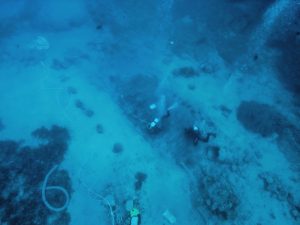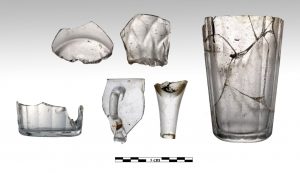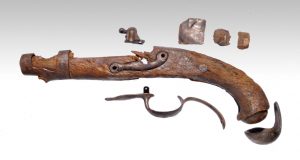Lord Elgin’s ship, The Mentor, which sunk overladen off the island of Kythera in 1802, carrying the Parthenon marbles to Britain, slowly reveals its cargo as underwater archaeologists study the wreckage.

Archaeologists studying the ship that sunk over 200 years ago are trying to uncover its cargo which looters failed to find. The precious marble slabs themselves were saved from the depths at the time, as Lord Elgin lost no time ordering their salvage. Currently, the team of underwater archaeologists headed by the Greek Culture Ministry’s Ephorate of Underwater Antiquities, Dimitris Kourkoumelis re-visited the wreckage to excavated more of the hull area.

So far the archaeologists have uncovered the remainder of the hull, sections of the hull and prow, a mere quarter of the ship. Among the objects found on the ship is a dozen ancient coins from the archaic to the Roman period, Rhodian amphorae with stamped handles, as well as fossils of fishes and plants from the Levantine coast. The Menthor is known for previously been travelling along the Levantine coast to accumulate antiquities for collectors in Europe, carrying the artefacts on-board.

Other finds include the base of a theodolite, possibly used by William Leak, a famous British topographer, who had made the topographical map of Zea in Piraeus, as well as some of the drawings of the Parthenon and a compass, part of an hourglass and calipers used in navigation of the ship. Moreover, objects of personal use were found, such as watches manufactured in London, glassware (drinking cups, vessels and bottles) and porcelain china used by the crew, three pistols, and a large number of lead bullets, flints and a cannon ball.

The archaeologists plan to return next season to explore the bow of the Mentor, hoping to uncover more antiquities may lie buried in the seabed.

(after Haaretz)